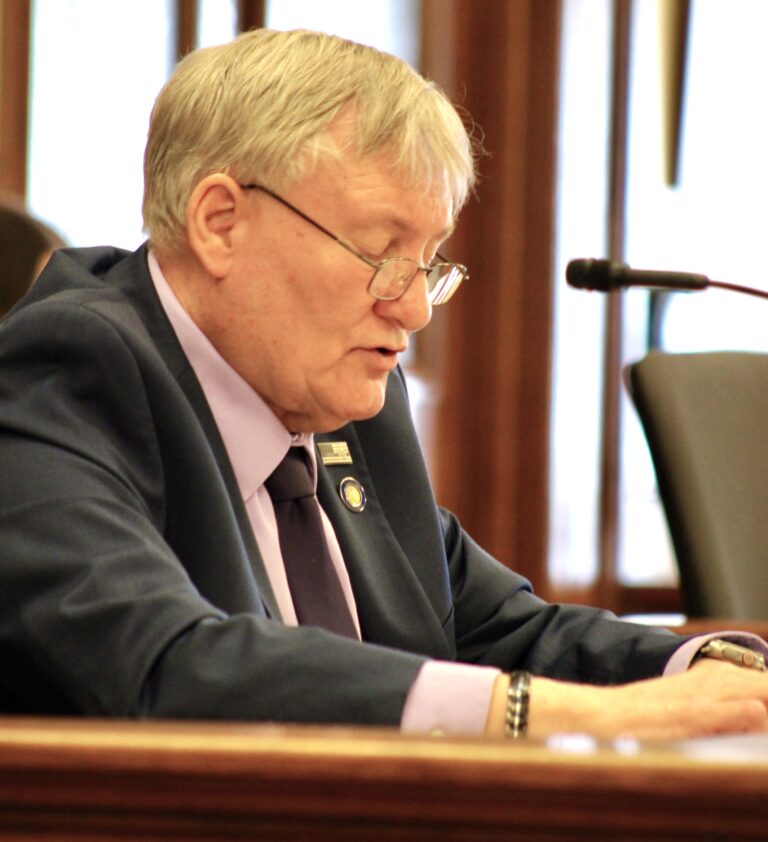The Capitol Report, produced by WisPolitics.com — a nonpartisan, Madison-based news service that specializes in coverage of government and politics — provides a weekly analysis of issues being debated in Wisconsin state government. It is underwritten by the WNA and produced exclusively for its members. WisPolitics.com President Jeff Mayers is a former editor and reporter for the Associated Press and a former political writer for the Wisconsin State Journal.
EDITOR’S NOTE: This column is provided to Wisconsin Newspaper Association members by WisPolitics.com. Proper attribution in your newspapers IS REQUIRED, including the byline “WisPolitics.com” and the tagline at the end of the column.
Acting Tourism Secretary Anne Sayers says the Joint Finance Committee’s vote to continue a $1.5 million addition to the Department of Tourism’s base budget will help Wisconsin remain competitive with other Midwestern states.
Tourism is in double the markets it was in 2019, and Sayers says it’s good marketing sense to stay there.
Sen. Joan Ballweg, who serves on the Legislature’s JFC, said the tourism industry will play a vital role in reinvigorating the state post-pandemic. The budget committee reviews and rewrites Gov. Tony Evers’ two-year budget plan before passage by the full Legislature. Then the document goes back to the governor for likely vetoes.
“Although the Department of Tourism is a relatively small department, the tourism industry supports over 200,000 jobs in our local communities and has an over $2 billion impact on our state’s economy,” Ballweg, R-Markesan, said after the provision passed in mid-May.
The committee also took action to continue to fund the Office of Outdoor Recreation, which was created in 2019 to promote Wisconsin as a top outdoor recreation state.
“Outdoor recreation has always been a top driver of visitation for Wisconsin, and it’s a growing sector of the economy even outside of tourism,” Sayers said. “There’s a lot of activity in this space nationally; Wisconsin is outpacing the national average.”
As participation levels in outdoor recreation skyrocketed in 2020, the office was there to organize that activity, Sayers explained. It’s also there for the manufacturers and retailers who are now raising questions around workforce, supply chain and how to keep the outdoor recreation economy growing.
That’s just one thing to help propel tourism into what looks like a record-setting year.
The numbers of Americans looking to travel in the next six months are at a peak since the beginning of the pandemic at 89 percent, Sayers told a WisBusiness.com virtual event on May 20. Vacations of two nights or more are outpacing both 2020 and the record-setting year for tourism of 2019.
“These are really strong indicators that this is tourists, travelers, residents all looking to get revenge on the year of lost travel, looking to get back out there and find ways to make memories and reconnect with friends and family,” she said. “And that’s going to mean good news for Wisconsin’s leisure and tourism industry.”
Hotels are seeing a similar outlook in the leisure space, especially in the Northwoods and Door County areas, said Wisconsin Hotel & Lodging Association President and CEO Bill Elliott. But business travel is “still very slow” in the state.
“From the data we’ve seen, once you mix the business travel and everything else, it will probably be closer to 2024 before we really see the full recovery back to the 2019 numbers,” he said.
Wisconsin Dells-area room and resort taxes fell 34 percent and 25 percent, respectively in 2020, said Tom Diehl, president of the Association of Wisconsin Tourism Attractions. But the first three months of 2021 have put room and resort taxes 8.5 percent higher than that of 2019.
“There is a lot of pent-up demand because people have been sitting home long enough, and we’re going to be a big benefactor of that,” he said. “My biggest worry is the labor shortage.”
While tourism establishments are preparing for an awaiting rush of visitors — many are struggling to find staff to accommodate guests. The workforce shortage is a multi-industry issue. Lawmakers, chambers of commerce and business associations called for an end to the federal unemployment bonus to help get people back to work.
Diehl said eliminating the enhancement would go a long way, but the tourism industry is also missing its J-1 workers.
Seasonal spots have come to rely on international students to help staff businesses. J-1 visas have been inhibited by travel restrictions and closed or delayed American embassies. Some businesses will have to reduce hours or services due to a staff shortage, Diehl said.
Hotels and lodging establishments also carry those burdens. It’s hard to encourage employees to come back to work when they’re making more than $16 per hour at home on unemployment, Elliott said. He noted he’s optimistic that the COVID-19 vaccine will encourage more people to come back to work.
“I know there are some hotels that are closing off rooms at this point just because they don’t have enough people to turn them over and to clean them up and get them ready for the next guest,” he said.
For more, visit WisPolitics.com
The Capitol Report is written by editorial staff at WisPolitics.com, a nonpartisan, Madison-based news service that specializes in coverage of government and politics, and is distributed for publication by members of the Wisconsin Newspaper Association.
Copyright © WisPolitics.com



